Understanding place value Numbers Worksheets for Ages 5-7
11 filtered results
-
From - To
Understanding place value is essential for young learners as it forms the foundation of their numerical comprehension. Our "Place Value Numbers Worksheets" for ages 5-7 are designed to make learning interactive and fun. Meticulously created, these worksheets help children grasp the concept of tens and units through engaging exercises. Perfect for classroom settings or at-home practice, they offer a step-by-step approach to mastering place value. With colorful visuals and simple instructions, our worksheets ensure that kids develop confidence and fluency in reading, writing, and understanding numbers, setting a strong base for future math skills. Unlock their potential with our expert-crafted resources!
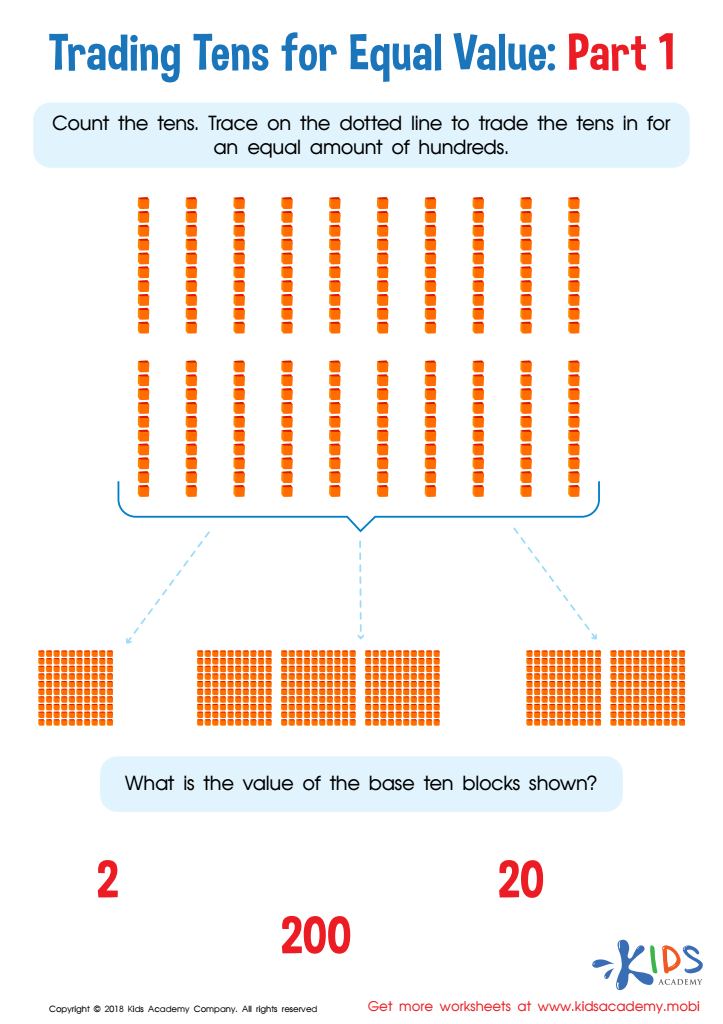

Trading Tens for Equal Value Worksheet: Part 1
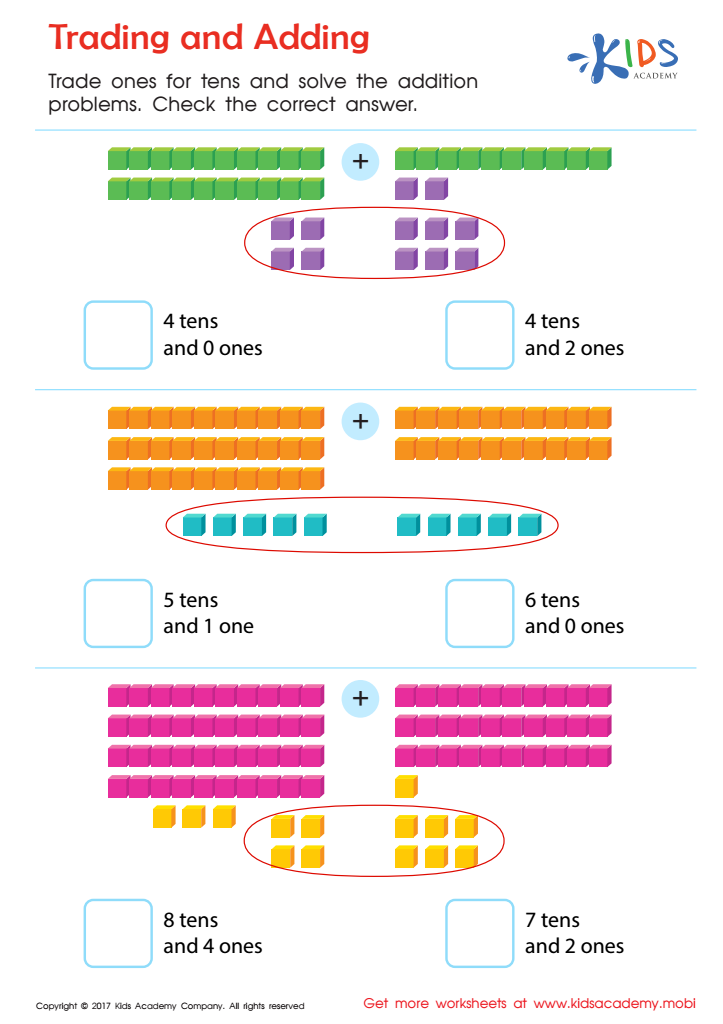

Trading and Adding Worksheet
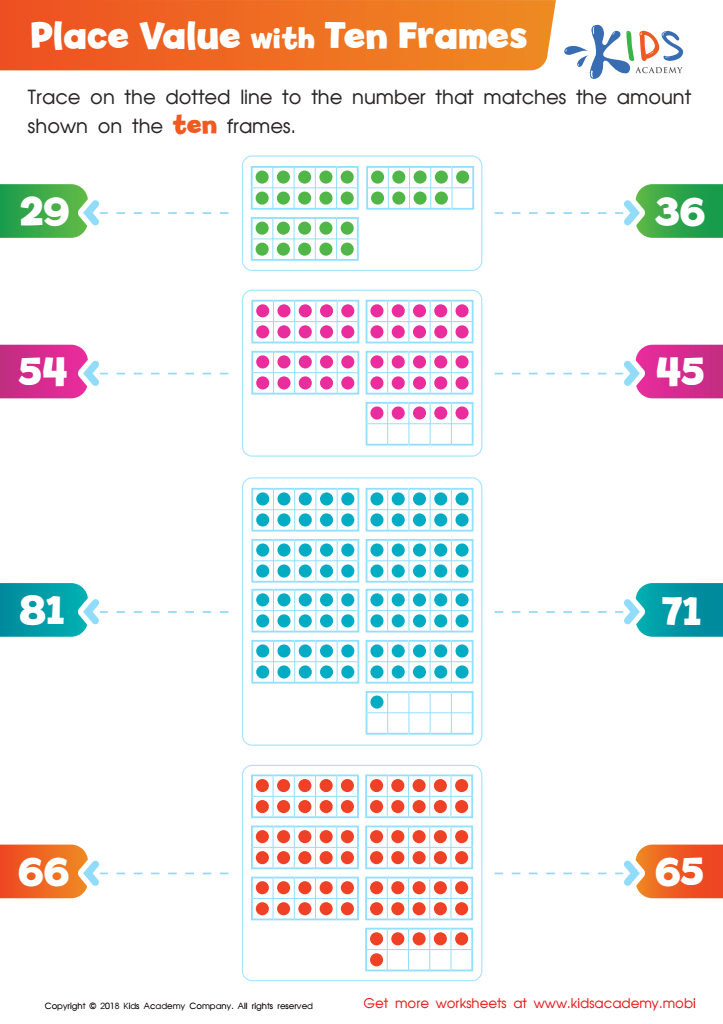

Place Values with Ten Frames Worksheet
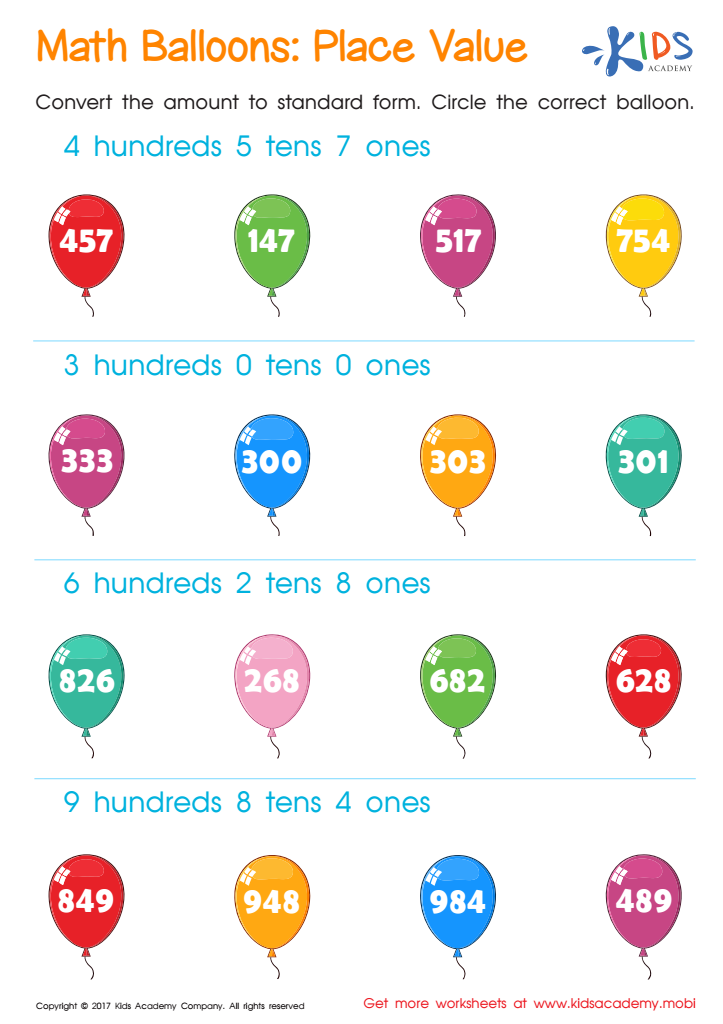

Place Value Printable Worksheet
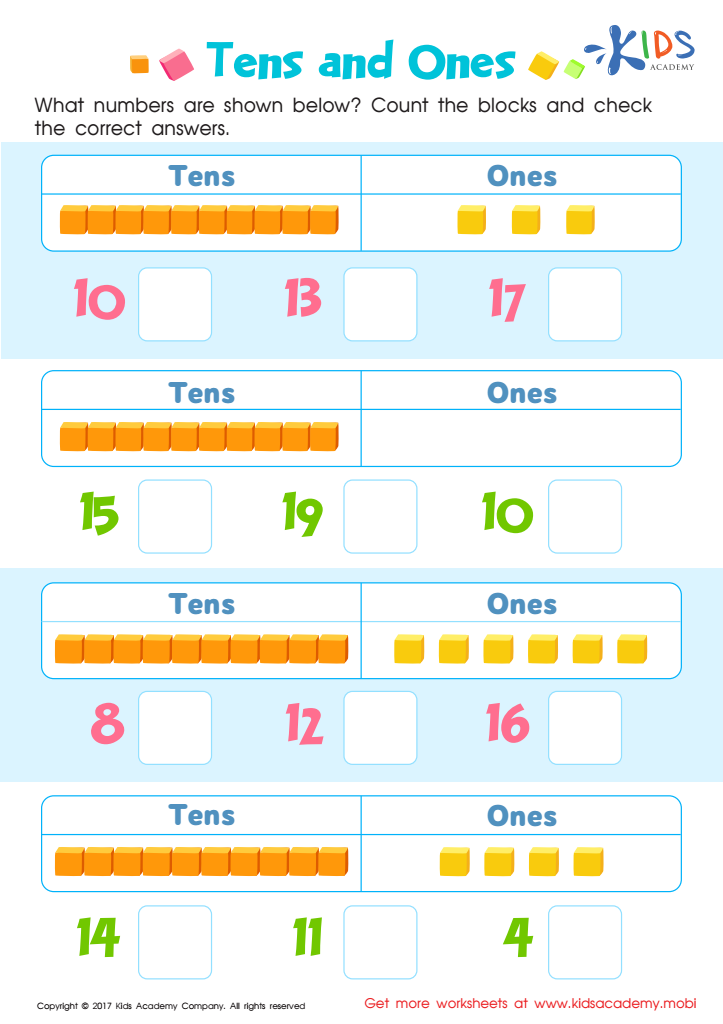

Tens and Ones Worksheet
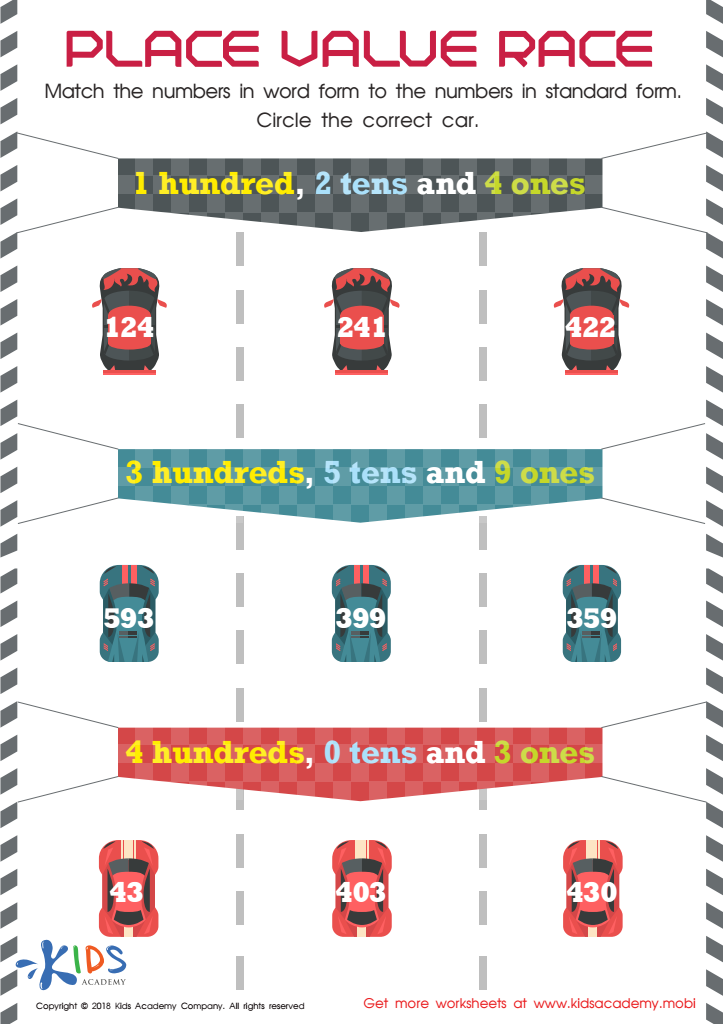

Place Value Race Worksheet
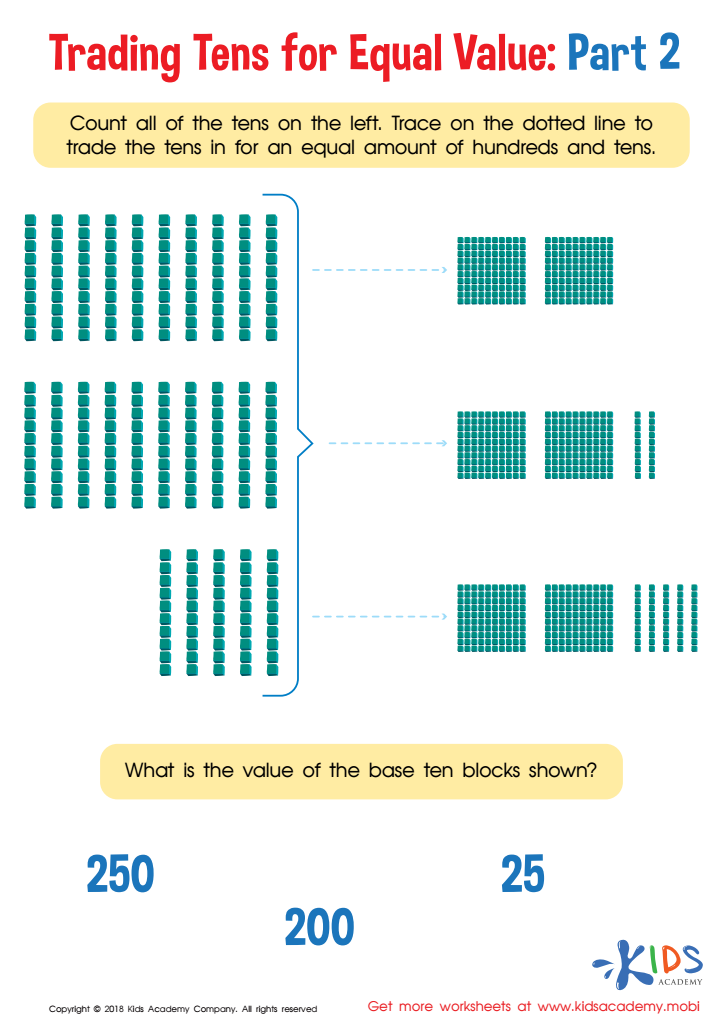

Trading Tens for Equal Value Worksheet: Part 2
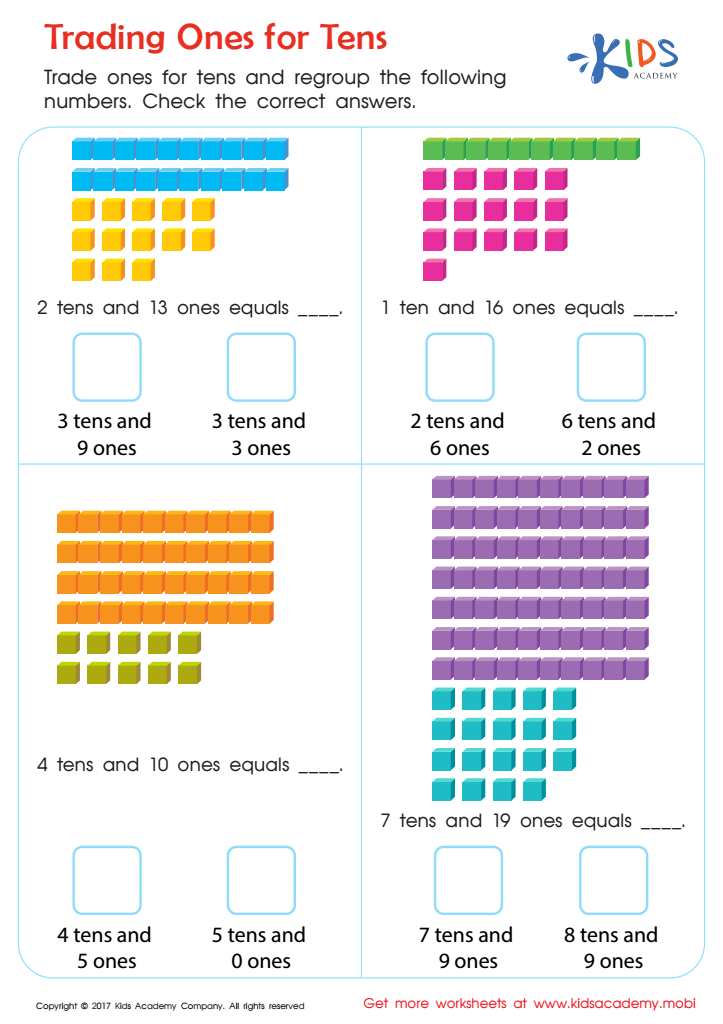

Trading Ones for Tens Worksheet
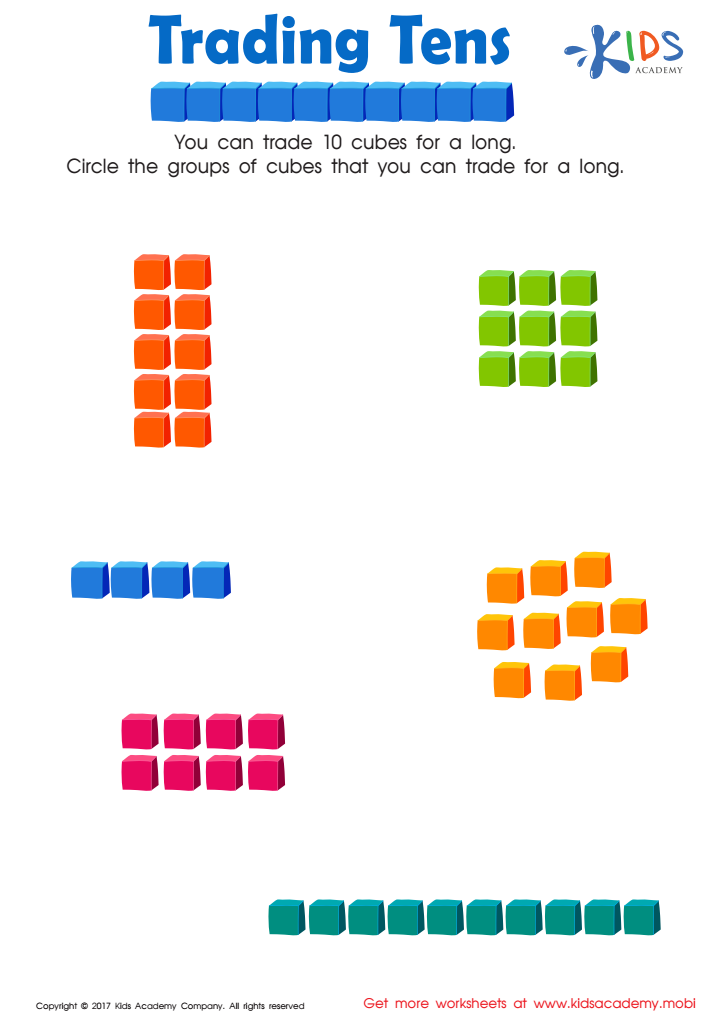

Trading Tens Worksheet
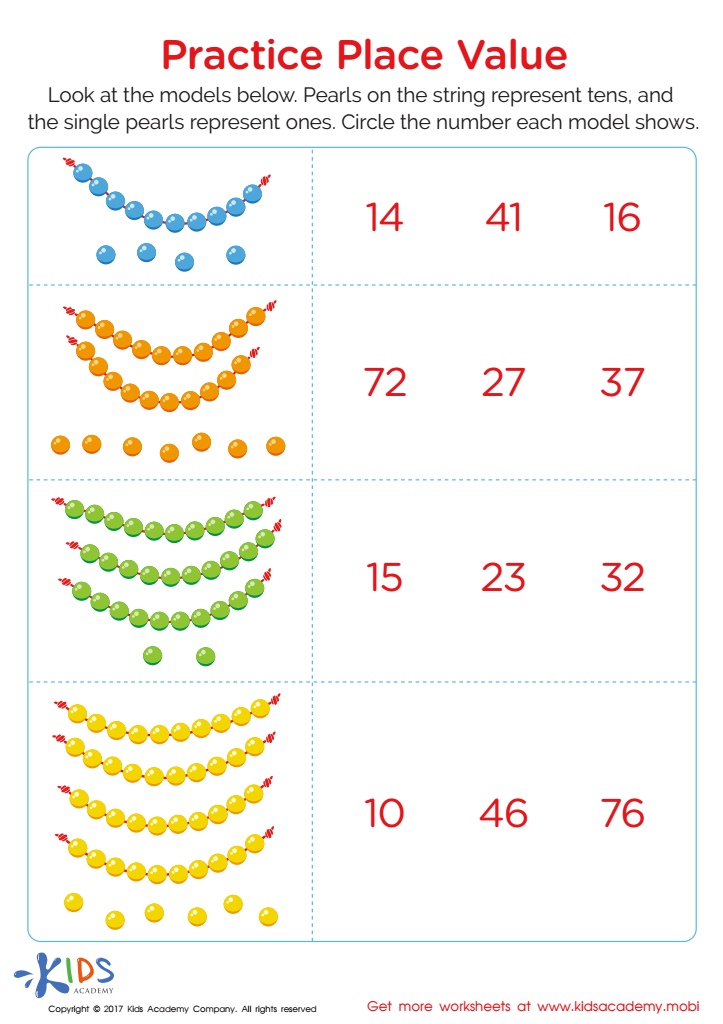

Practice Place Value Printable
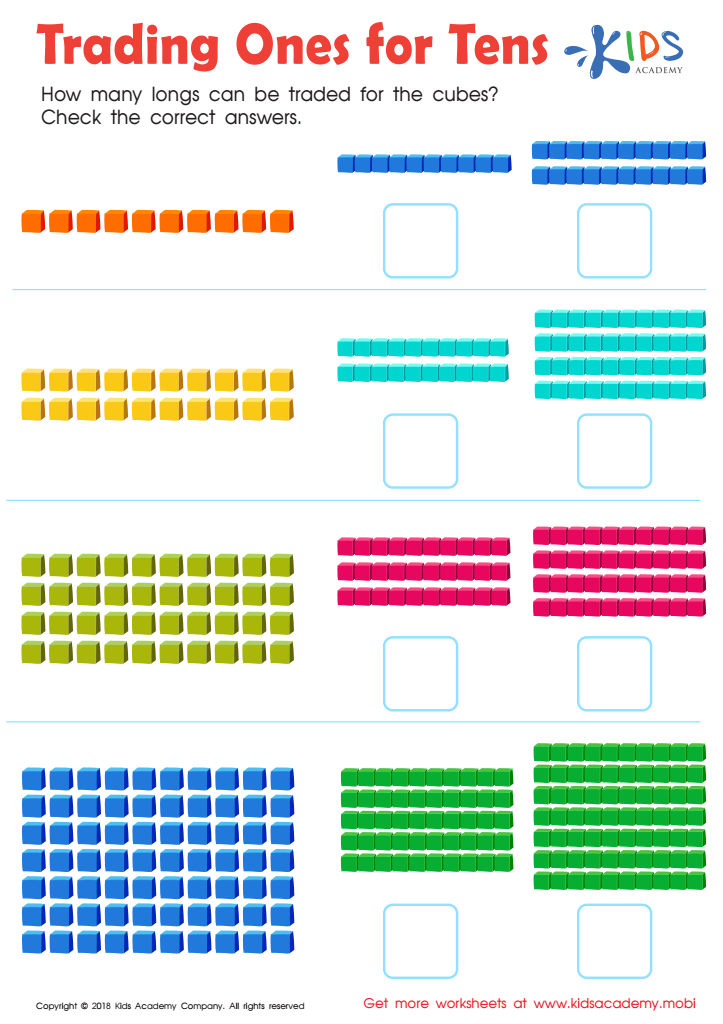

Trading Ones for Tens Worksheet: Part 2
Understanding place value is fundamental for young children to grasp more complex mathematical concepts as they progress in their education. At ages 5-7, children are typically being introduced to numbers beyond simple counting; they're learning how to structure and interpret larger numbers. Mastery of place value enables children to comprehend the significance of digit positions in numbers, such as units, tens, and hundreds. For instance, recognizing that in the number 58, the '5' represents five tens (or fifty), while the '8' is eight ones, is critical for operational understanding.
From a practical standpoint, skills in place value contribute directly to more advanced arithmetic operations such as addition, subtraction, multiplication, and division. Breaking down these operations into component parts, which reverberates back to place value understanding, allows children a clearer conceptual framework to manipulate numbers. This competence encourages numerical fluency and confidence.
Furthermore, grasping place value lays the groundwork for mental math strategies, equipping children to solve problems more efficiently and build their mathematical intuition. Both parents and teachers have a pivotal role in nurturing this understanding early on. Their engagement can come through educational games, structured exercises, and real-world applications, ensuring the child's foundational math skills are robust and well-developed.
Ensuring that children grasp these core concepts with confidence will bolster their academic success in mathematics and enhance their overall problem-solving skills.
 Assign to My Students
Assign to My Students





















